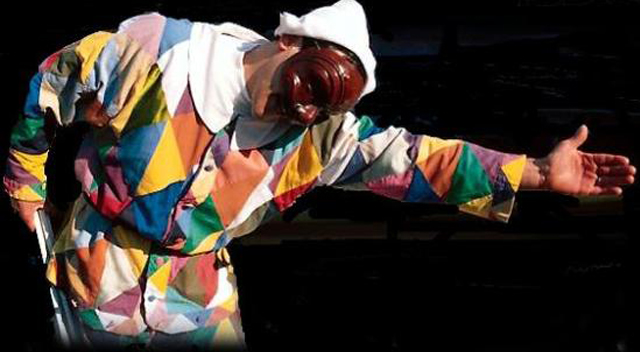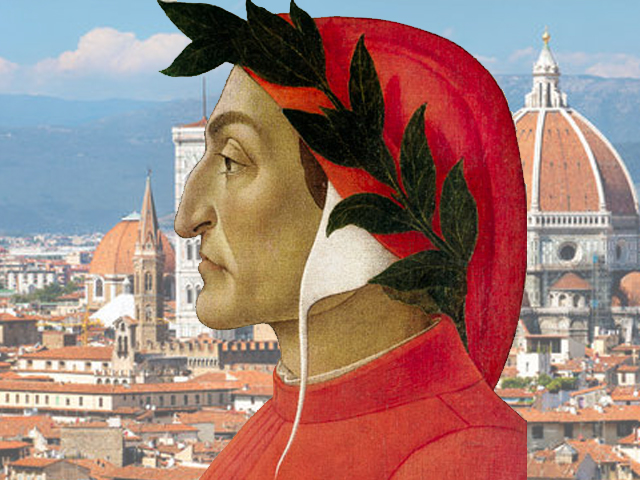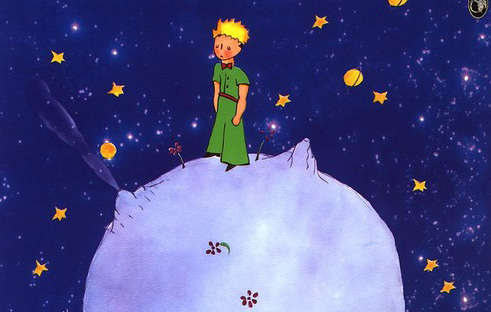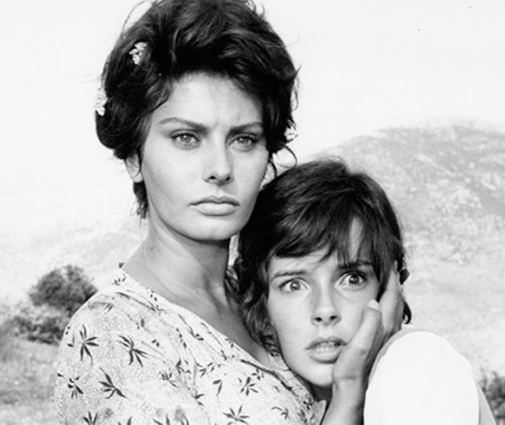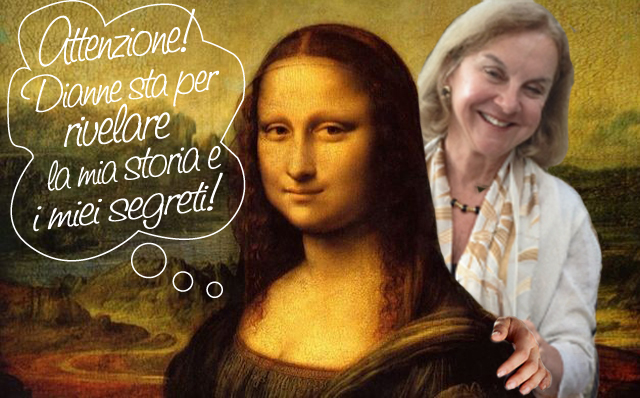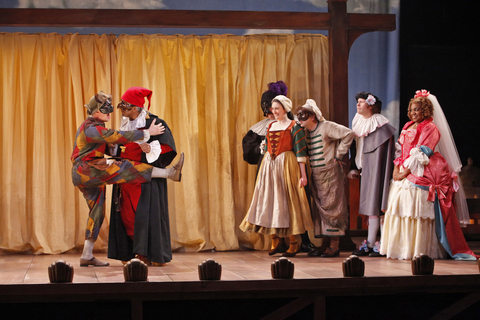
The other day on my Facebook page I mentioned a couple of new Italian words that I had learned from reading Twitter messages. One of the words was “canovaccio” a word that means dish towel or painting canvas. A friend let me know that “canovaccio” also can mean the sketch for a typical Commedia dell’Arte drama. The Commedia dell’Arte is a form of theater characterized by masked character types that began in Italy in the 17th century and paved the way for female actresses and improvised comedy skits. “The skits were not based on written scripts but on “canovacci” or improvised scenes that in the beginning were held out of doors with a set of just a few objects. The theater company was composed of ten people, eight men and two women.
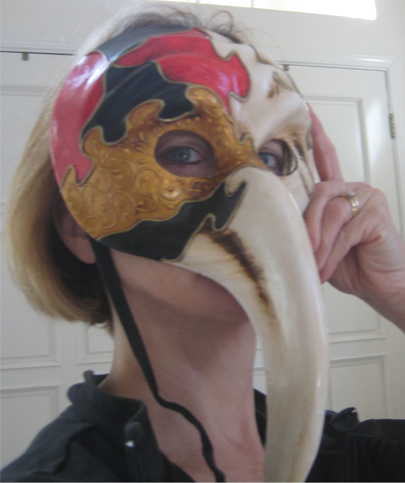
I think it is quite a coincidence to be having a conversation about “canovaccio” since this is the time when everyone is celebrating carnival. I love this time of year because I am crazy about carnival masks that have their origins in the Commedia dell’Arte. In the cast of characters, everyone has a different mask that represents each unique personality. There is Pantalone (rich and stingy), Doctor Balanzone (fat and boring), Capitan Spaventa (strong and arrogant), Arlecchino (sly and funny), Colombina (pretty and innocent) and Pulcinella (lazy and gossipy). Pulcinella’s mask is black with a long nose while Colombina’s mask, perhaps the most well known mask for women, is a half mask that hides only a part of the face. Here I am with my mask with a long nose…perfect for me because like Pulcinella, I am a chatty too.
There are several wonderful expressions that come from carnival and the Commedia dell’Arte. Have you ever here “il segreto di Pulcinella”? Pulcinella being an opportunist that doesn’t know how to keep his mouth shut is not the proper person to tell a secret. If Pulcinella knows a secret, the whole world soon knows the secret. There is another expression “Ti conosco, mascherina!” that means despite appearances, we can not be fooled. This expression dates back to the middle ages when during carnival, even if just for a few days, people had the opportunity to exchange roles. In a society full of rules and based on a strict cast system, the costume had a purpose that is now lost: hiding behind a mask and concealing one’s true identity gave everyone the chance to act in a way they would never have the courage to act if their faces were revealed.
More recently there is the expression created by Gianni Rodari “È carnevale, e ogni scherzo oggi vale.” It’s carnevale, and every joke is fair game! Here is the children’s song he wrote:
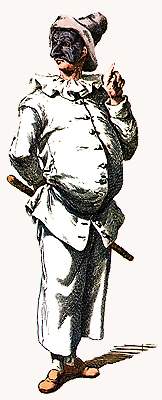
Carnevale in filastrocca,
con la maschera sulla bocca,
con la maschera sugli occhi,
con le toppe sui ginocchi:
sono le toppe d’Arlecchino,
vestito di carta, poverino.
Pulcinella è grosso e bianco,
e Pierrot fa il saltimbanco.
Pantalon dei Bisognosi
“Colombina,” dice, “mi sposi?”
Gianduia lecca un cioccolatino
e non ne da niente a Meneghino,
mentre Gioppino col suo randello
mena botte a Stenterello.
Per fortuna il dottor Balanzone
gli fa una bella medicazione,
poi lo consola: “E’ Carnevale,
e ogni scherzo per oggi vale.
So enjoy yourselves at carnival time and don’t forget to put on your favorite mask, especially if you intend to act just a little out of character this year!
